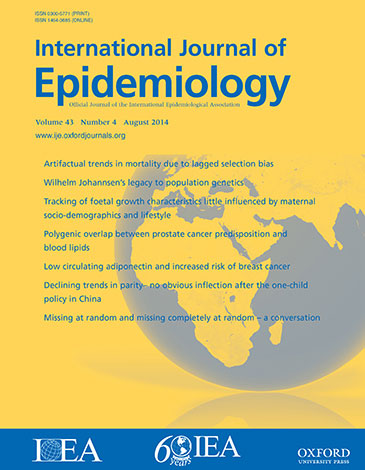有效性-实施混合研究在干预研究中的实际应用
IF 5.9
2区 医学
Q1 PUBLIC, ENVIRONMENTAL & OCCUPATIONAL HEALTH
引用次数: 0
摘要
混合有效性-实施研究的出现是为了解决研究人员在评估现实环境中基于证据的干预实施时面临的设计挑战。混合研究允许将有效性和实施性研究问题纳入同一项研究,从而使有效性研究的有用性最大化,而不考虑研究设计(观察性、单独随机试验、集群随机试验、偏好设计、适应性设计等)。混合研究利用实施科学方法促进将研究成果整合到公共卫生规划、保健实践以及社区和政策设置中。在本文中,我们描述了三种类型的混合研究,它们存在于一个连续体中,取决于对有效性和实施研究问题的强调。我们通过示例讨论常见的实施结果,说明实施阶段(或阶段)如何影响实施结果的选择。然后,我们从最近的文献中总结了混合研究的例子,并提出了设计混合研究时的实际考虑。最后,我们概述了在实施阶段考虑提出的以实施为重点的研究问题的示例,并讨论了相关的抽样方法。本文章由计算机程序翻译,如有差异,请以英文原文为准。
Practical application of hybrid effectiveness–implementation studies for intervention research
Hybrid effectiveness–implementation studies have emerged to address design challenges that researchers face when assessing evidence-based intervention implementation in real-world settings. Hybrid studies maximize the usefulness of effectiveness studies by allowing both effectiveness and implementation research questions to be included in the same study, regardless of the research design (observational, individually randomized trials, cluster-randomized trials, preference designs, adaptive designs, etc). Hybrid studies utilize implementation science methods to facilitate integration of research findings into public health programming, health-care practice, and community and policy settings. In this article, we describe the three types of hybrid studies, which exist on a continuum depending on the emphasis placed on the effectiveness vs the implementation research questions. We discuss common implementation outcomes with examples of how the stage (or phase) of implementation can influence selection of implementation outcomes. We then summarize hybrid study examples from recent literature and present practical considerations when designing a hybrid study. Finally, we outline examples of implementation-focused research questions to consider asking by phase of implementation and discuss related sampling approaches.
求助全文
通过发布文献求助,成功后即可免费获取论文全文。
去求助
来源期刊

International journal of epidemiology
医学-公共卫生、环境卫生与职业卫生
CiteScore
13.60
自引率
2.60%
发文量
226
审稿时长
3 months
期刊介绍:
The International Journal of Epidemiology is a vital resource for individuals seeking to stay updated on the latest advancements and emerging trends in the field of epidemiology worldwide.
The journal fosters communication among researchers, educators, and practitioners involved in the study, teaching, and application of epidemiology pertaining to both communicable and non-communicable diseases. It also includes research on health services and medical care.
Furthermore, the journal presents new methodologies in epidemiology and statistics, catering to professionals working in social and preventive medicine. Published six times a year, the International Journal of Epidemiology provides a comprehensive platform for the analysis of data.
Overall, this journal is an indispensable tool for staying informed and connected within the dynamic realm of epidemiology.
 求助内容:
求助内容: 应助结果提醒方式:
应助结果提醒方式:


